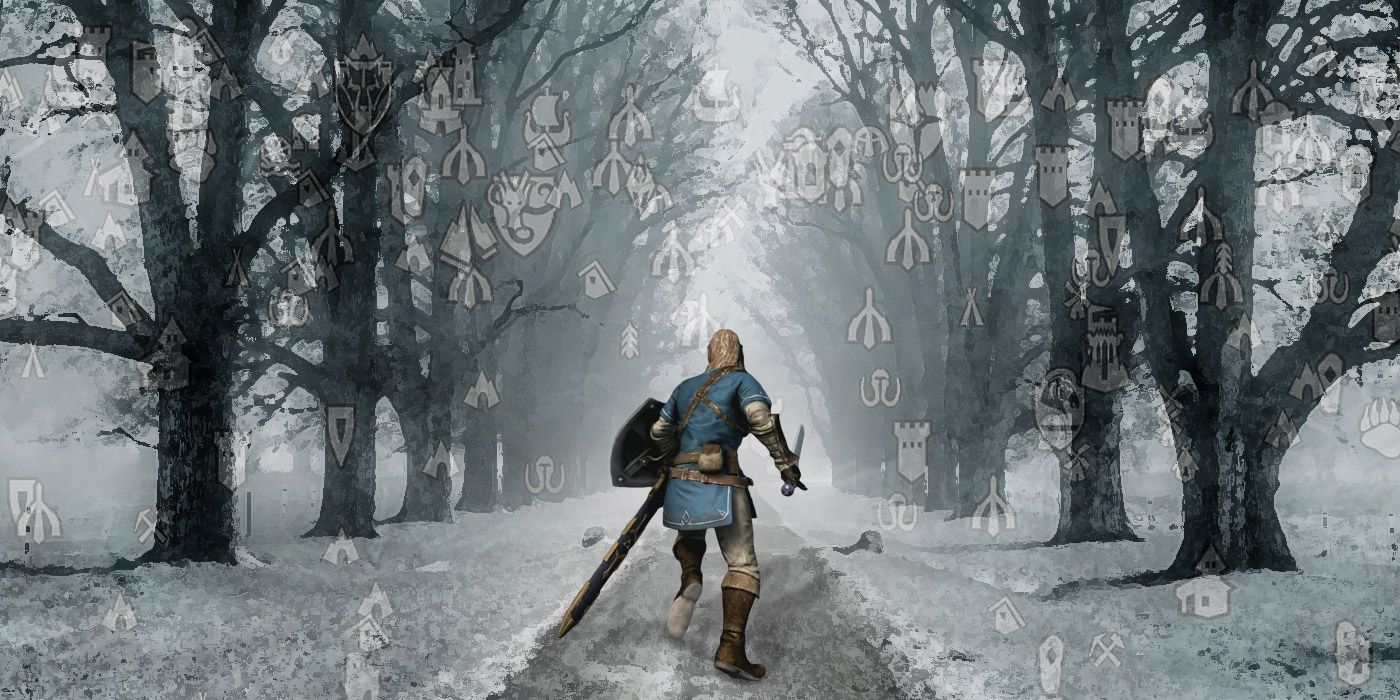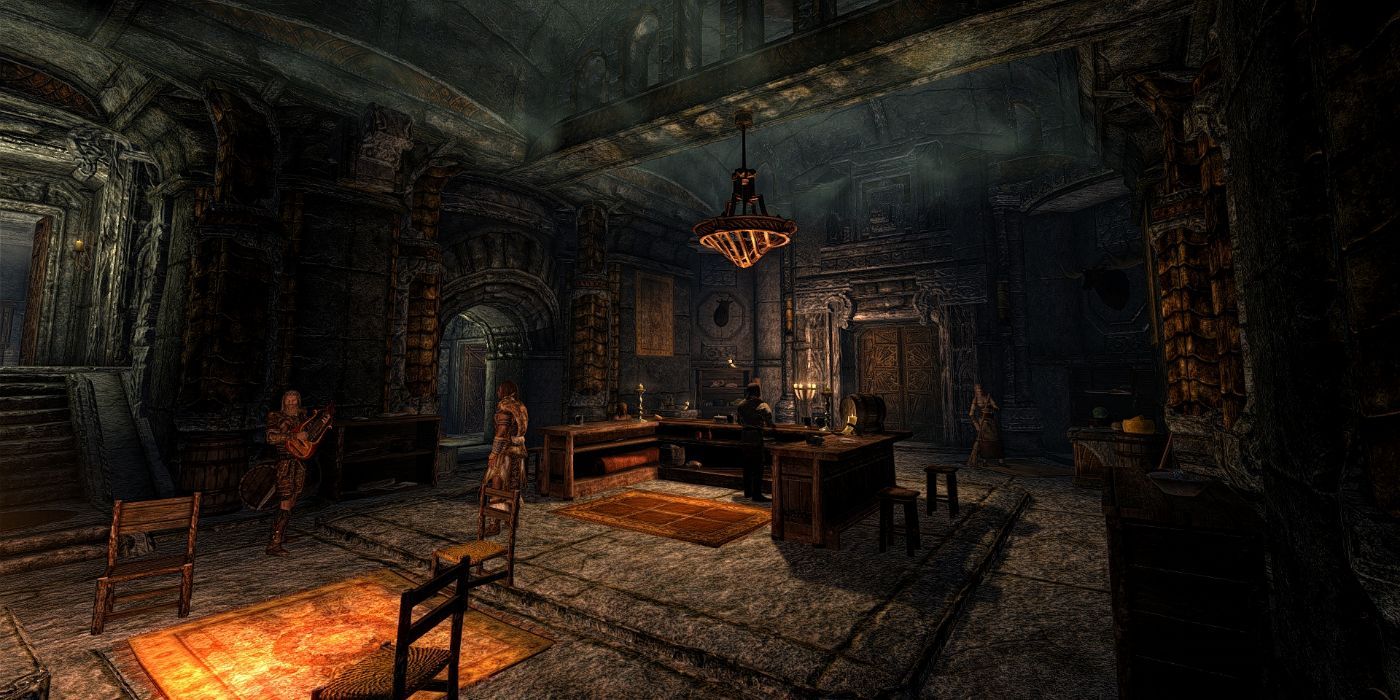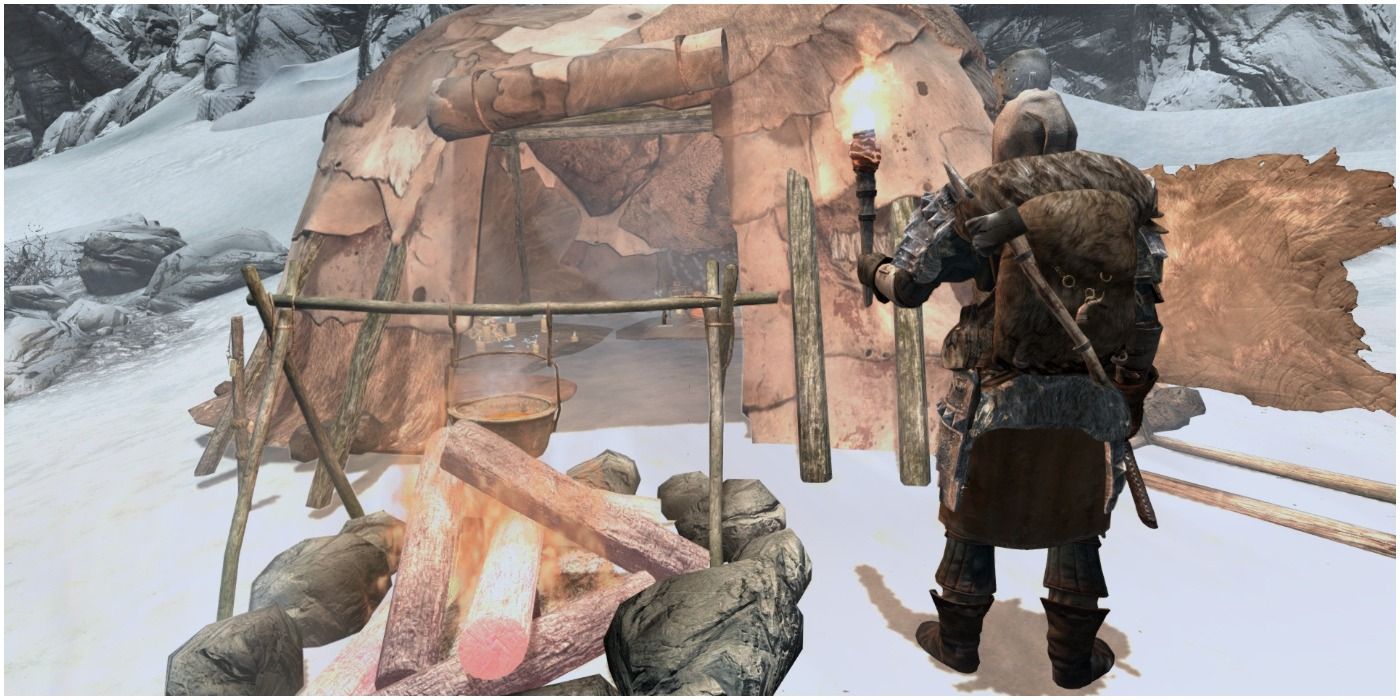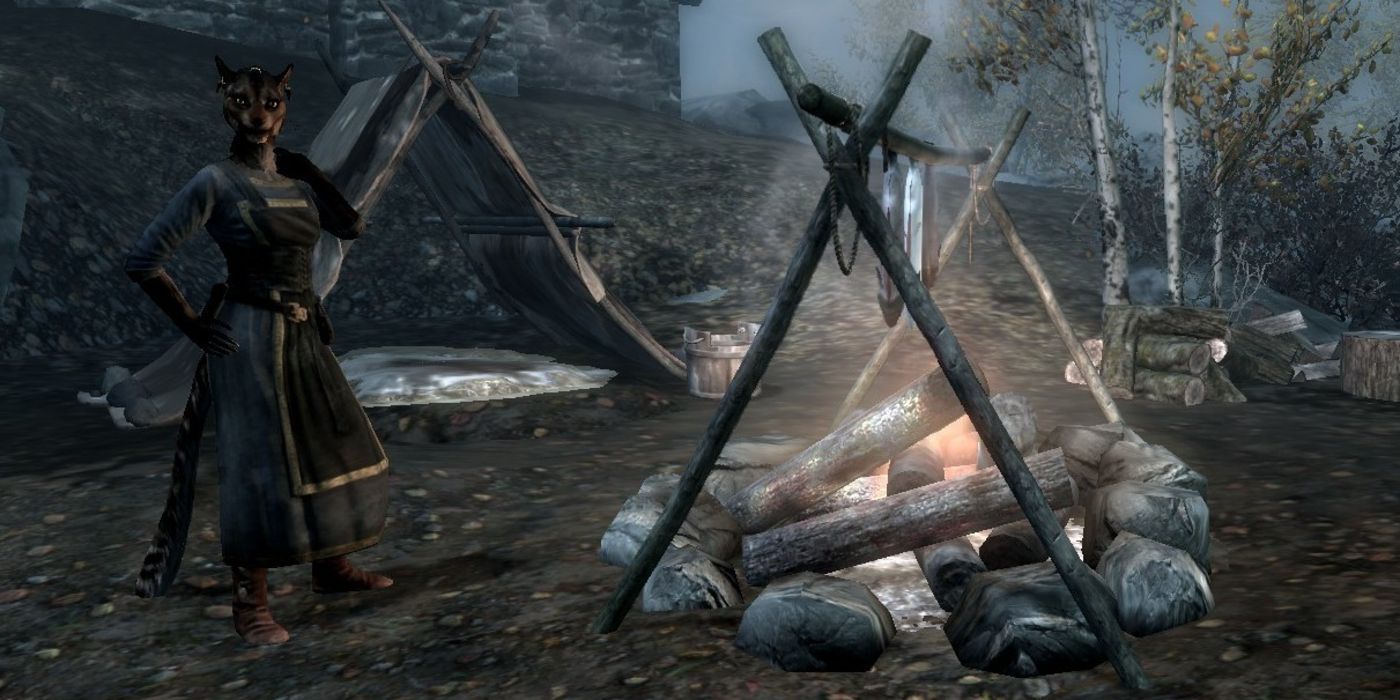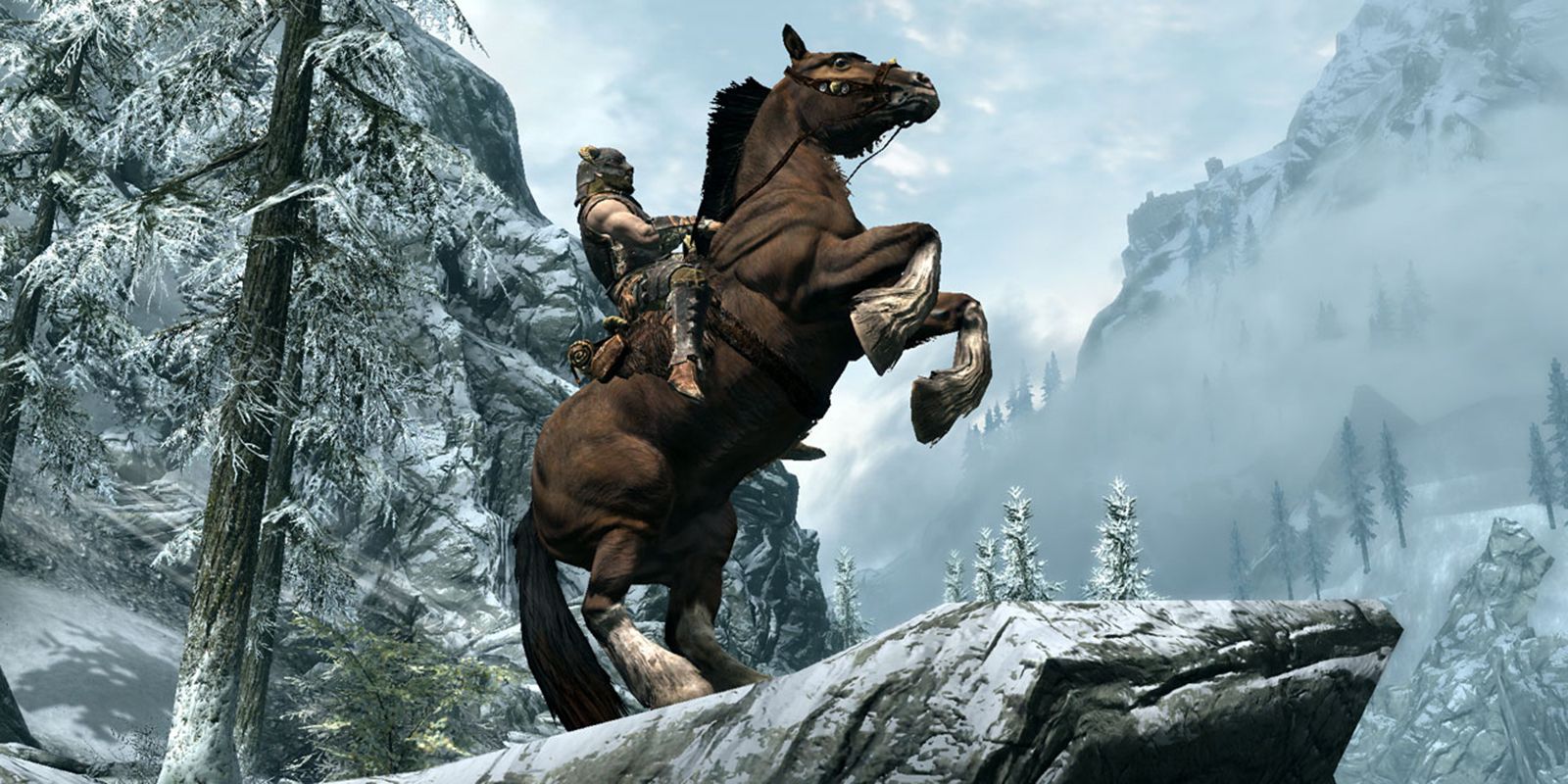The Elder Scrolls 6 is currently in development at Bethesda, and hopes will be high that the next game can trump Skyrim’s immense success and longevity. The teaser trailer released all the way back in 2018, but at Brighton Digital 2020, Todd Howard commented that the next Elder Scrolls would make extensive use of procedural generation to help create a larger in-game world.
Travel is a huge part of the open-world Elder Scrolls experience, and The Elder Scrolls 6 will likely be no different. With the game’s potentially huge world, however, Bethesda will need to make sure travel doesn’t become a burden while also avoiding making it so easy that the world feels less threatening.
Waiting and Sleeping
Waiting is the easiest way to pass time in Skyrim. The player can wait for up to 24 hours at a time, allowing the effects of certain diseases to wear off, health and mana to regenerate, and to skip forward to certain special quest events. However, as a mechanic, waiting also causes problems in The Elder Scrolls.
In Oblivion, the player could also wait but could only level up by visiting a bed and sleeping. This meant that on the road players were still incentivized to find places to stay, though admittedly only after journeys long enough for the player character to level up again. Skyrim replaced this with the simplified “Well Rested” perk, which while fine, was weak and short enough that it didn’t make diverting a planned route worth it.
It’s far more convenient to wait in place than it is to find a place to stay in Skyrim. If The Elder Scrolls 6 includes a waiting mechanic, there should be better incentives to go sleep in a bed as well. Not only would it make the world of The Elder Scrolls 6 become more immersive, but it would encourage players to find roadside stops that could be the beginning of new adventures.
The Elements
Another way to incentivize exploration is through a harsher weather system. Mods like Frostfall add survival elements like exposure to cold and wetness into the game. This makes taking short cuts by running through rivers and other less realistic modes of travel less appealing, making it possible for the wet and the cold to cause the player to faint or die.
This is mostly relevant in Skyrim’s frozen landscape, but if The Elder Scrolls 6 is set in Hammerfell as speculated, the principle could be just as easily applied to heat like it is in Breath of the Wild or other aspects of nature like sandstorms and rain. By making the world more threatening in and of itself not only would The Elder Scrolls 6 be more immersive but would once again encourage players to stop at inns, hide in crypts and ruins, sneak up on bandits’ campsites and other great roleplaying opportunities.
Survival elements aren’t everyone’s thing, of course, and like Frostfall and other immersive Skyrim mods this addition would have to come with a degree of separate difficulty settings. However, while factoring in the weather may initially appear tedious it can make the world of an Elder Scrolls game feel larger and scarier without feeling spread thin.
Caravans
Skyrim has several khajiit trade caravans that travel the province, delivering supplies and contraband from outside the gates of Skyrim’s hold capitals. Despite this, there are surprisingly few quests with the caravans, who travel all across Skyrim. The player can walk with the caravans from destination to destination, but there is little incentive to do so.
In The Elder Scrolls 6 there should be some areas where the elements and monsters are dangerous enough that it’s wise to travel with a group. Trade caravans are just one example, but finding ways to make travel easier in this way could also be a great method for introducing interesting new Elder Scrolls NPCs.
Players could make deals with different caravans, paying them money or doing some possibly illegal work for them in exchange for their protection. In an open-world series like The Elder Scrolls it shouldn’t be the case that the player is unable to progress to some areas without the help of a caravan, just as they can progress without resting or eating. However, caravans and other means of travel – like Stros M’Kai’s famous pirate ships – could be very immersive if properly incentivized.
The trick with getting any of these elements to work will be Bethesda incentivizing them such that the player is choosing to get more out of travel, and doesn’t feel forced to. There should still be fast travel, but there could be ways that choosing to eschew convenience pays off. Travelling with a caravan might take more time, but could help the player get to thus far unexplored areas while making some money along the way.
Horses
Similarly, horses in The Elder Scrolls could hugely increase the carrying capacity of the player, with the horses’ saddlebags essentially working like a chest as a separate inventory. Not only would this encourage players to take their mount along with them, but would also incentivize them to help their horse keep up as they traverse the land instead of leaving them behind when convenient.
In Skyrim there was no whistling to call the player horse like in The Witcher 3. Including this feature could also help make mounts seem like a more realistic and immersive part of the world instead of disposable vehicles. Some mounts might even be better for different kinds of terrain, and the player could even hitch a cart to the back of their horse if they want a vastly increased carrying capacity, perhaps at the chance of being attacked on the road.
The Elder Scrolls 6 should embrace the franchises’ formula, giving players greater freedom and more roleplaying opportunities. Fully utilizing the incentivizing power of travel could be a great start, helping make the world of the next game feel larger but more worth exploring.
The Elder Scrolls 6 is in development.




